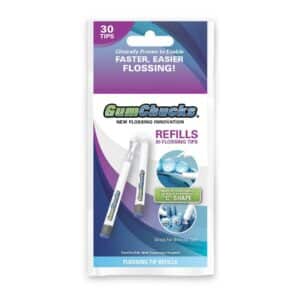Unexpected oral pain when you’re consuming hot or cold food or beverages, brushing or flossing your teeth, or even just breathing, are all uncomfortable signs of sensitive teeth. Pain from tooth sensitivity can come and go, it also usually effects one area of the mouth rather than all your teeth, although it’s important to target the cause of your sensitive teeth even if the discomfort is minimal. Below we examine all the causes, symptoms, and treatments you can utilize to heal your uncomfortable sensitive teeth.
Causes of Sensitive Teeth
The Academy of General Dentistry estimates that as many as 40-million American adults experience tooth sensitivity at some point in their lives. What most people with tooth sensitivity don’t realize is why they’re experiencing this uncomfortable oral pain. Below we list some of the most common causes of tooth sensitivity:
- Receding Gums: The roots of our teeth have countless tiny tubes that carry sensation (cold, hot, sweet, etc.) to a nerve center called the pulp. When one has periodontal disease, the gum tissue layer can pull away from your teeth and expose the ultra-sensitive root.
- Flossing or Brushing Too Hard: Brushing too hard can wear away enamel and pull away your gums from the tooth roots. Flossing too hard can leave your teeth sensitive as well. Fortunately, GumChucks’ innovative design makes flossing faster, safer, and easier due to the two independent handles that give you more control.
- Cracked Teeth: Once your tooth is cracked, the nerve-rich pulp inside may become irritated when chewing.
- Tooth Decay and Cavities: Decay and cavities exposes the roots of your teeth, which leads to irritation and pain.
- Grinding and Clenching Your Teeth: Tooth enamel is strong, however, clenching and grinding your teeth can wear away enamel over time.
- Tooth Whiteners and Mouth Wash: Teeth whiteners and mouth wash contain cleaning solutions that can cause sensitive teeth.
- Acidic Foods: Too much acid-rich foods can erode the outer enamel of your teeth and expose the sensitive layer underneath, called dentin.
Symptoms of Sensitive Teeth
Individuals with sensitive teeth usually experience discomfort or pain at the roots of the affected teeth when experiencing specific triggers. The most common triggers include:
- Alcohol-based mouth wash
- Brushing or flossing teeth
- Hot beverages and foods
- Cold beverages and foods
- Sweet beverages and foods
- Acidic beverages and foods
- Cold air
Treating Sensitive Teeth
The best way to address tooth sensitivity generally is to take care of your teeth. It’s important to gently floss and brush your teeth twice a day as well as regularly visit our dentist for cleanings and oral exams. If your tooth sensitivity issue has progressed past discomfort and has moved into a painful sensation, dental surgery may be required. Dental surgeries to resolve teeth sensitivity issues include:
- Filling cavities
- Root canal operations
- Gum graft
- Dental bonding
Flossing and brushing twice a day is essential to preventing cavities and eliminating the opportunity for sensitive teeth to arise. Flossing is the only way to remove plaque from between your teeth, flossing regularly also helps keep tartar out of hard-to-reach places. GumChucks’ design ensures a flossing experience that’s faster, easier, and more effective than competing flossers or traditional floss. Our two handles with disposable floss allow you to comfortably reach all your teeth, even those in the back while wrapping the floss around each tooth. This creates the vital “C-Shape” necessary to get below the gum line and effectively clean each tooth.
-
Refill Pack (30 tips) • Bundle of 50 packs$150.00
-
Starter Samples (handles + 10 tips) • Bundle of 50 packs$64.50
-
Subscription: GumChucks Flossing Tip RefillsFrom: $5.19 / year




0 Comments